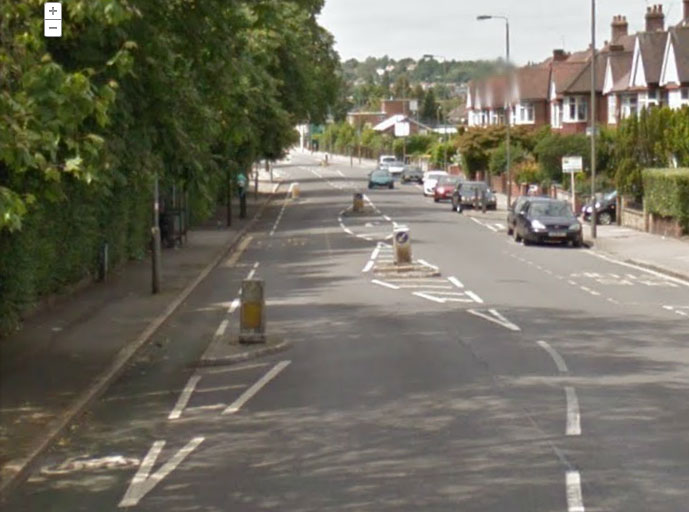Boris shouldn’t just apologise for blaming cyclists for getting injured. He should correct the policies that are based on this mistake.
It will come as news to nobody that making a journey by bicycle on Britain’s roads means exposing yourself to a considerable number of people who are operating potentially lethal machinery despite having neither the skills nor the temperament for the task. The fact that a significant proportion of the people society has allowed to drive on the public highway are simply not competent behind the wheel is far from a new phenomenon. Indeed, it was one of the inspirations for starting this blog two and half years ago.
Over those years the blog has strayed off into all sorts of other areas, like designing out the need to deal with incompetent drivers entirely, but the original issue has been back at the top of my mind — partly due to the other thing I’ve been working on. Mostly, though, I think it’s because of the forceful reminder of the fact that comes from moving to SW17, just off Cycle Superhighway 7. Perhaps I’m just imagining it, or perhaps it’s simply the psychological bias towards to the recent, but after a New Cross-Bloomsbury commute, the roads between Tooting and South Kensington seem to have more than their fair share of the sort of motor vehicle operators who demonstrate a screaming lack of the aptitude and/or attitude that the activity requires.
It’s particularly highlighted in south west London by the near zero speed limit compliance around CS7 between Kennington and Clapham outside of the rush hour congestion, and the folk using the bus and cycle lanes to pass already speeding traffic as they try to get their high-powered cars — which I’ve always presumed must be stolen from the West End — back to Stockwell and Streatham. Or the few folk who still insist on commuting to the City by car, desperately seeking a ratrun back to the Surrey suburbs and not allowing any of LB Wandsworth’s traffic calming to slow them down as they slalom in and out of cycle lanes on residential streets like Burntwood Lane…

And yet there is one person to whom this blindingly obvious problem might have come as news, at least until recently: Boris Johnson. During his successful campaign for re-election in the spring, the famously carefree with facts Mayor made the absurd claim that two thirds of cyclists who had been injured and killed on the city’s roads were breaking the law when they were injured. After months of pretending that he was trying to remember what the evidence for the obviously fictional factoid was, he finally retracted it — once the election had long passed.
Last month, Jenny Jones MLA asked the mayor to apologise:
In your response to question 2450/2012, you admit that Transport for London’s statistics and research completely disprove your previous claim that two thirds of cyclists who have suffered serious injuries were breaching the rules of the road at the time. Will you now apologise for wrongly blaming cyclists who have been killed or injured on London’s roads through no fault of their own?
The mayor instead decided to send a great big “fuck you” to victims:
Please refer to my response to MQ 2450 /2012.
But it seems to me that Boris has much more to make amends for than merely insulting the victims of bad driving and the way we operate our streets, and he needs to take far more substantial action than making an apology.
Because Boris is responsible for the problem, and if he really has been labouring under the delusion that it is cyclists who are responsible for the carnage on the capital’s streets then his mistake would at least explain why his policies have so far failed to do anything to address the problem.
The office of Mayor of London has always incorporated the role that in the rest of England and Wales is now played by the recently introduced Police and Crime Commissioners. Policing priorities are therefore ultimately Boris’s responsibility. And there is no remotely realistic policy in place for tackling the problems of life-threatening incompetence, aggressive anti-social behaviour, and barefaced criminality amongst operators of motor vehicles that is on near constant display every evening along Cycle Superhighway 7 and the residential streets of south west London. Boris has allowed deadly dangerous driving to carry on as the norm, apparently because he was oblivious to it, preferring to pursue policies targeted at changing cycling behaviour.
He has added insult to injury and he needs to apologise for both.
